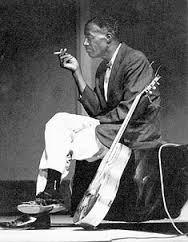Two Paragraphs
(Tune in to Writing Wednesdays this Wednesday for the continuation of the series “Using Your Real Life in Fiction” — and for more of The Knowledge‘s backstory.)
Two paragraphs on pages 140-141 are what The Knowledge was about for me. That was the payload. The other 273 pages are just the narrative architecture to carry what’s in those few lines.

Sometimes it’s just about the blues
Remember our earlier series on this blog called “Why I Write?” My biggest reason, at least for my early (unpublished) books, was I was writing out of pain. Pain and guilt. Pain and remorse.
I can’t prove it, but I suspect a lot of writers pound the keys for that same reason.
“Everybody commits a crime,” [Marvin Bablik says on pages 158-9 of The Knowledge.] “You, me, everybody. From that day your life becomes about nothing but dealing with that crime. How do you handle the fact that you’ve done something that can never be undone? Deny it? Seek redemption? Do you try to justify your crime? Become a criminal? Do you demand punishment? Square it with God by making sure you pay for what you’ve done? The Jewish religion is about justice. You devout? Me neither. I’m not even circumcised.”
The real-life period on which The Knowledge is based was, for me, about an unforgivable act I had committed against someone I loved. For thirty years I tried to write my way out of that.
It’s impossible of course. Words can never make up for acts. But I wanted, for myself if for no one else, to get it down on paper. To say I’m sorry. To articulate the act and the regret therefor in the hope that, like a blues song or a heartbroken poem, it might ameliorate or at least express something a reader could relate to him- or herself.
But I could never do it. I couldn’t find the vehicle. I couldn’t find the mode of expression. I just wasn’t a good enough writer.
I felt like I was carrying around one mega-concentrated drop of cyanide, and I couldn’t figure out how to discharge that drop into the landfill without poisoning somebody else in the process.
Do you remember this verse from Joni Mitchell’s “Love Or Money?”
He tried but he could not get it down
Not for truth or mystery
Not for love or money
Did something terrible happen to you?
Did you do something unforgivable to someone else?
You and I as writers are, sometimes anyway, seeking to use fiction, to employ narrative to neutralize some real-life cleavage of the heart.
The problem is we can’t just state our pain or regret straight out. It’s whiny. It’s weak. It doesn’t work.
Our novel can’t say, “Look how shamefully X treated me.” Or, “Group Y is evil; see what they did to my beloved Group Z.”
The original pain or crime must be set within a context that
1) Gives it meaning, not just to you and me as the writer, but to the reader
2) Renders it universal so that the reader can enter the experience and claim it as her own
3) Makes it beautiful.
(By “beautiful,” I mean funny if the vehicle is a comedy, scary if it’s a horror tale, sexy or romantic if it’s a love story.)
For me, in The Knowledge, I had to evolve a fictional “me,” an invented narrative, a fictional person-I-hurt, and even a slightly fictionalized crime. I had to create a parallel redemption story, involving other (fictional) characters and other fictional events. And I had to set the whole thing within a genre—in this case a Big Lebowski-type detective story—that allowed for humor, style, and aesthetic distance.
It worked.
I was able to set that single drop of cyanide within a couple of acres of peanut brittle, and when that drop came—the two paragraphs (which are still too painful for me to quote here)—it slipped seamlessly into the narrative. It fit. The puzzle turned on it.
It worked.
Do I feel better now? A little. As much as you can.
Do you, the writer, have your own two paragraphs? That is a valid reason to write. It’s an honorable reason to write. I wish you luck. I hope these posts, and your own Muse, will help you find the vehicle and the language to “get those paragraphs down.”



